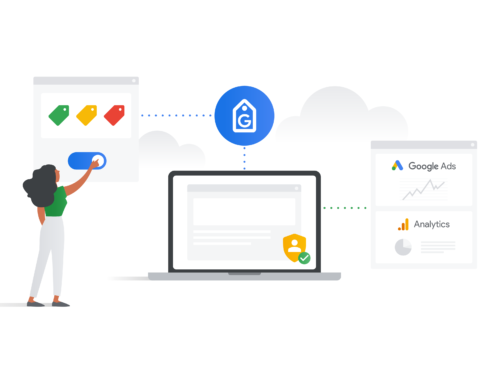Starting a new business is not for the faint-hearted. It is full of challenges and sacrifices, yet most entrepreneurs who persevere say they would do it all again in a heartbeat. If you’re considering starting your own business, there are several essential elements you need to have in place beforehand:
- A strong business idea
- Thorough market analysis
- Clearly defined target customers
- Adequate funding (personal savings, investors, or a business loan)
- A comprehensive financial plan
- A well-crafted business plan
Among these, having a bulletproof startup business plan and a passion for the long haul are the most crucial. Successful entrepreneurs believe the following tips are key to navigating the ups and downs of running a new business:
Powerful Value Proposition
Basing your new business on customers’ needs and wants is essential. Ask yourself critical questions about your value proposition:
- What unique value does your business offer to customers?
- What specific problems can your products or services solve?
- Are your target customers willing to pay for your solutions?
Crafting a compelling value proposition that resonates with your target audience is the foundation of a successful business. By clearly communicating how your business addresses their pain points and improves their lives, you can attract and retain loyal customers.
You Need a Business Plan
It’s notoriously challenging to start a new business; the easy part is spending all your resources and your time on it. The solution is to write a traditional business plan. If you get it on paper you will know exactly where you’re headed. Research online for a free business plan template or create your own detailed business plan.
The Different Types of Business Plans
As a new business owner, it is important to understand the different types of business plans, and when to use them. For example, when you want to secure funding from an investor, your should use an investor pitch deck, however when you are inputting a funding request from a bank, you should provide a standard business plan outlining all financial aspects of the new business.
Executive Summary
This is a concise overview of the entire business plan, typically one to two pages long. It highlights the key points, such as the business concept, market opportunity, financial projections, and goals. An executive summary is often used to pique the interest of potential investors or partners.
Lean Business Plan
Ideal for startups and small businesses, a lean business plan focuses on the essentials. It typically includes a one-page business plan or a brief outline covering key aspects like the business concept, target market, value proposition, and revenue model. A lean business plan template is designed for quick execution and ongoing adaptation.
Standard Business Plan
This is the traditional and comprehensive business plan, ranging from 20 to 40 pages or more. It includes detailed sections on market analysis, company description, products or services, marketing strategy, financial forecasts, and more. Standard plans are often used for seeking loans or presenting to investors.
Pitch Deck
While not a traditional business plan, a pitch deck is a concise visual presentation usually consisting of 10-20 slides. It’s used in conjunction with a pitch to investors and typically includes key information like the problem being solved, the solution, market opportunity, team, and financial projections.
Operational or Internal Plans
These plans are typically shorter and focus on specific aspects of business operations, such as marketing plans, financial plans, or HR plans. They are used for internal purposes and may range from a few pages to more detailed documents.
Your Business Plan
Your business plan template should include your projected results and your personal goals, for example, your business might make a profit of $50,000 but if you have a family to support and you live in a large city then this is not enough money to live on by any means.
Business plans are important in identifying parts of your business model that might need tweaking at different stages.
Develop A Marketing Strategy
A marketing strategy is the foundation of any successful business plan. It’s a meticulously planned approach that leverages data and insights to promote a brand, product, or service effectively. At its core, it involves defining your target market, market research, selecting the most appropriate digital channels, creating compelling content, and optimising campaigns for maximum visibility and engagement. A well-crafted marketing plan provides a roadmap for businesses to achieve their goals in the competitive digital landscape.
Why Startups Need a Marketing Strategy?
For startups, a robust marketing strategy is not a luxury but a necessity. It’s the key to breaking through the noise in the competitive landscape, and establishing a presence in the market. Startups often face tight budgets and fierce competition. A tailored marketing strategy helps them allocate resources efficiently, connect with their target audience, and differentiate themselves from competitors. Without a clear plan, startups risk getting lost in the vast digital landscape and missing out on valuable opportunities for growth.
How Integral Media Can Help
At Integral Media, we understand the unique challenges startups face. That’s why we specialise in providing customised marketing strategies tailored to the specific needs and objectives of emerging businesses. Our data-driven approach, rooted in market analysis and competitor research, ensures that every strategy we develop is designed to yield tangible results. We offer startups the expertise and guidance they need to navigate the digital landscape successfully. Contact us today, and let us partner with your startup to craft a marketing strategy that drives growth and sets you on the path to success.
Stay Customer Focused
If you can master the art of sales and marketing you’re on the path to a successful business. There are many companies offering less than the best services and products that do very well because they have a good grasp of sales and marketing.
If you do your research, fully understand the buying habits of your potential customers, and keep an eagle eye on your competitors, it will help you succeed. You can also connect with other businesses similar to the one you want to develop, and discover what their clients say about them on social media.
You Need to Start Small, Get Others On Board
It’s a great idea to self-fund your startup, then when you have a story of growth and a good record you should apply for funds from your bank or other lenders. It’s fine to do everything yourself at the beginning but there will come a time when you need to get others on board – people like an accountant, a lawyer, an insurance agent, a web page designer and other relevant professionals.
Keep Advisors and Mentors Involved
Statistics show that within five years of starting up, more than half of the new businesses will fail. So you need to value your mentors and advisors and seek their help. It is near impossible for one person on their own to possess all the skills, experience, knowledge and perspective necessary to deal with every business roadblock that will appear.
You Need to Know Your Figures
For efficient business operations you will need to be aware of your sales, gross margins, financial projections, cash flow, profits, and the metrics relevant to your business. No doubt there will be random decisions made but if you’re aware of exactly where you are with your figures, the decision will be the correct one.
Search out places where costs can be cut, don’t miss out by avoiding tools such as social media and email marketing. There are great ways to drive your message home rather than opting for traditional advertising which costs so much more.
Discipline and Dedication
This is such an important tip. As you have already found out, owning any sized business is one of the most difficult jobs in the world and every cent you make will be hard-won. In a survey carried out recently, many startups fail because the entrepreneur gives up too early, rather than fight through the challenges. That’s why discipline and dedication can become a big role in new businesses
Be Passionate About What You Do
Many small businesses and small business owners can testify that starting a business can be a very lonely, thankless road to take and there are not enough hours in a day to complete every job. Without a great deal of passion for your goals, if you see your business as just a way to make a quick buck, then your job will be that much more impossible.
Feedback Is The Key To Success
Try your product or service out on people to find out what they like about it or what they dislike. Allowing someone else to cast an eye over what you’re offering can reveal things you might not have considered and it gives you a chance to iron out unforeseen problems early in the piece.
Such feedback can be invaluable if you get it early so you can change things that can be changed. You must accept all the feedback, however, and some might not be positive so don’t take it personally. Just thank the person who told you what they think, no matter what they have said.
When to Make it Official
Launching your business will be an exciting time but you must make sure you’re ready and all the legal aspects have been covered so you won’t need to worry about a potential partner doing the wrong thing, or someone stealing your idea. To help, here is a quick checklist:
- Business name
- Register the business
- Business structure (corporation, partnership etc)
- Business bank account
- ABN or GST
- Permits and licences
- State and Federal taxes
- Trademarks, copyrights and patents for your intellectual property
While it’s possible to do all of the things in the above list on your own, it’s much safer to have experts do it when you’re starting a new business to avert any problems.
How Integral Media Can Help
At Integral Media, we are experts in crafting a digital marketing strategy that will give your new business a competitive advantage. When starting your business planning for a new business concept, don’t forget to include your marketing objectives, that way, we can make sure your marketing efforts don’t go unnoticed when we start your campaign.
Whether you are an established business struggling to be seen or a new business getting off your feet, get in touch with us today to discuss your business goals and objectives and lets get you to the top of Google’s Search Engine Results Pages.






